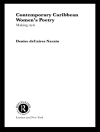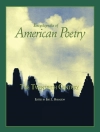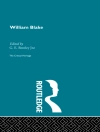Color (1925) is a collection of poems by Countee Cullen. Published the same year Cullen entered Harvard to pursue a masters in English, Color was a brilliant debut by a poet who had already gained a reputation as a leading young artist of the Harlem Renaissance. Deeply personal and attuned to poetic tradition, Cullen’s verses capture the spirit of creative inquiry that defined a generation of writers, musicians, painters, and intellectuals while changing the course of American history itself.
“Over three centuries removed / From the scenes his fathers loved, / Spicy grove, cinnamon tree, / What is Africa to me?” In “Heritage, ” Cullen investigates his relationship with the past as a black man raised in a nation his people were forced to build. His question bears a dual sense of genuine wonder and cynical doubt, and ultimately produces no easy answer. For Cullen could have just as easily asked “What is America to me?”, to which his poem “Incident” might respond: “I saw a Baltimorean / Keep looking straight at me. / […] / And so I smiled, but he poked out / His tongue, and called me, ‘Nigger.’ / […] Of all the things that happened there / That’s all I can remember.” In these lines, a single memory serves to define an entire city; an entire childhood, even, is defined by the violent response of a white man consumed with hatred. Cullen’s relationship to place, whether Africa, America, or Baltimore, is inextricably linked to his experience of racial violence. With this knowledge, he navigates the spaces between these places, inhabiting a language and a poetic tradition thrust upon him at birth. For Cullen, poetry is as much a means of survival and self-invention as it is a form of art—without it, where would he be?
This edition of Countee Cullen’s Color is a classic of African American literature reimagined for modern readers.
Since our inception in 2020, Mint Editions has kept sustainability and innovation at the forefront of our mission. Each and every Mint Edition title gets a fresh, professionally typeset manuscript and a dazzling new cover, all while maintaining the integrity of the original book.
With thousands of titles in our collection, we aim to spotlight diverse public domain works to help them find modern audiences. Mint Editions celebrates a breadth of literary works, curated from both canonical and overlooked classics from writers around the globe.
Sobre el autor
Countee Cullen (1903-1946) was an American poet, novelist, and playwright. In his youth, Cullen moved frequently with his mother Elizabeth Thomas Lucas before settling in Harlem at the age of nine, where he was raised by his grandmother Amanda Porter. In 1917, following her death, he was adopted by Reverend Frederick A. Cullen of Salem Methodist Episcopal Church, who led the largest congregation in Harlem and would later become president of the local NAACP chapter. He excelled in high school, graduating with honors to enroll at NYU, where he gained a reputation as a prize-winning poet whose works appeared in Harper’s, Crisis, and Poetry. In 1925, he went to Harvard for a masters in English just as his first collection, Color (1925), was published to popular and critical acclaim. He graduated in 1926, after which he published two more collections—The Ballad of the Brown Girl (1927) and Copper Sun (1927)—cementing his reputation as a leading writer of the Harlem Renaissance. Cullen was known for his friendly and professional associations with such figures as Duke Ellington, Langston Hughes, and Alain Locke, defining artists and intellectuals of their generation. Throughout his life, Cullen struggled with his sexuality and shy demeanor, pursuing relationships with men and women alike. He received a 1928 Guggenheim Fellowship, using it to write The Black Christ and Other Poems, a controversial collection for its comparison of the crucifixion to the lynching of black Americans. Despite the backlash, he continued to write and publish for the next two decades, turning to plays and children’s fiction at the end of his career and, at one point, mentoring a young James Baldwin. His translation of Euripides’ tragedy Medea is considered the first of its kind by a black American writer. Often overshadowed by his more outspoken peers, Cullen’s legacy is that of a master of traditional poetic forms who used his voice and tremendous intellect to uplift and examine the lives of all African Americans.












